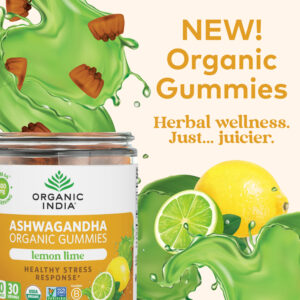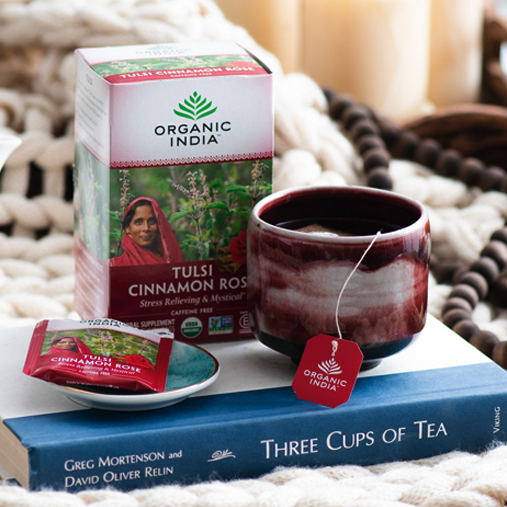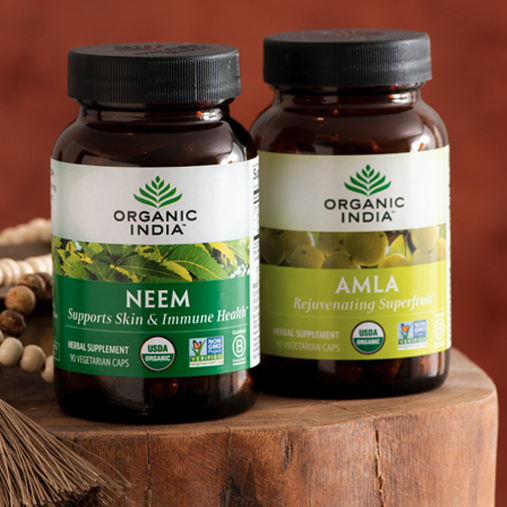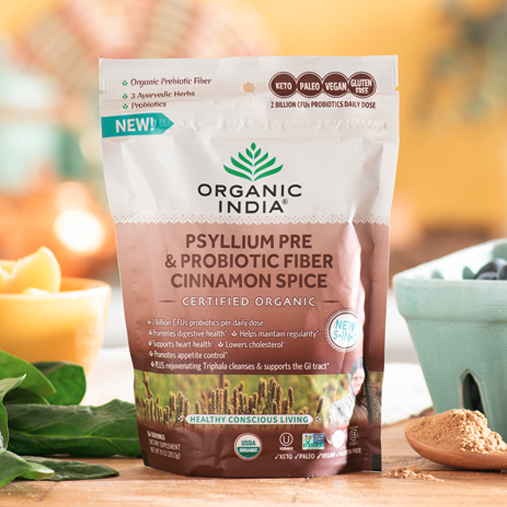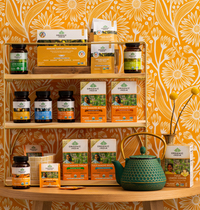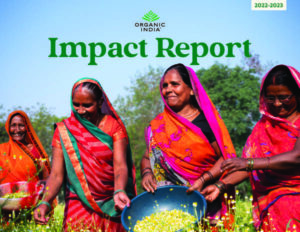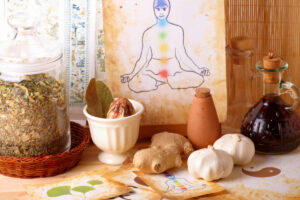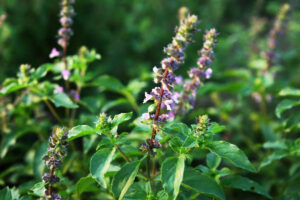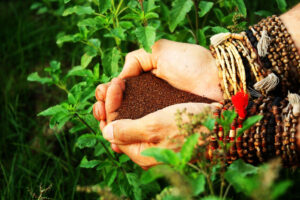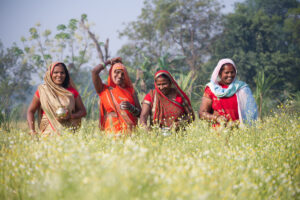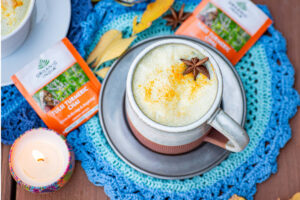While the Moringa tree is not well known in the West, in Asia, Africa, and India, it has been treasured for centuries as a wondrous, multi-faceted plant. Moringa fiber, which is strong enough make rope, is also used to make dye and fertilizer. But most markedly, Moringa is valued for its health and nutritional properties.
Medicinally, organic Moringa is known for its high concentration of antioxidants and its ability to balance blood sugar, improve cardiovascular health, and address inflammation. All parts of the Moringa tree provide healing power, rendering the plant an answer to a wide array of symptoms and illnesses — from body pains and weakness to more serious issues.
Moringa offers 15 times more potassium than bananas, and nine times the protein content than yogurt. Its iron content is a whopping 25 percent more than what is found in spinach leaves.
Superfood Moringa
Moringa is among a handful of healing plants deemed “superfoods” over the past decade. Such a designation is reserved for plants that feature not only great potential to heal many illnesses, but also for preventing disease and rebuilding the body — from the cells to the tissues to the organs. Much of this beneficial action in superfoods is attributed to antioxidant performance. Antioxidants protect the cells from damage due to oxygen-robbing “foreign invaders,” such as environmental and endogenous (internal) toxins, artificial chemicals, microorganisms, and even pharmaceutical drugs.
Moringa is also heralded as an effective remedy for malnutrition, which is a testament to the tremendous amount of nutrition stored within this edible tree. Among the ample supply of essential phytochemicals within its leaves, pods, and seeds are calcium, vitamin C, and vitamin A precursors. Moringa offers 15 times more potassium than bananas, and nine times the protein content than yogurt. Its iron content is a whopping 25 percent more than what is found in spinach leaves.
Countries like Senegal and Benin treat children who suffer from malnutrition with Moringa. In addition, researchers have found that several spoonsful of Moringa leaf powder are capable of supplying a pregnant mother’s daily iron and calcium requirements, and that Moringa also supplies vitamin B and folate necessary for proper brain function in fetuses and nursing newborns.
Moringa for Energy
Within the cells of the body, fats, proteins, and carbohydrates from the diet are delivered to the mitochondria (energy production centers of cells), where they are broken down to produce ATP (adenosine triphosphate, a unit of energy). The entire process of how energy is created is complex, but the main lesson is that we need the right kinds of foods in our diets, as well as fresh air, clean water, and a healthy mental state.
There are several factors involved in the body’s energy-producing mechanisms, including (but not limited to) oxygen, iron, glucose, fats, proteins, and vitamins — particularly, vitamins C, A, E, B1, B2, B3, B5, B6, and B12. Moringa is one of the greatest sources of these food factors. Its high vitamin B content helps facilitate good digestion and is important in converting food into energy, as opposed to storing it as fat. This, by the way, makes Moringa an excellent weight-loss food.
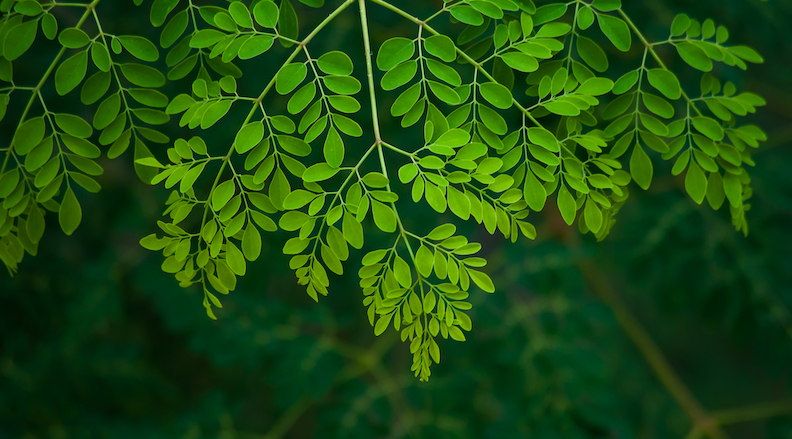
Moringa Vs. Coffee in the Morning
If you’re looking to restore, encourage, or boost your energy, add Moringa to your morning regimen. Coffee is known to spike energy levels and increase cortisol in the body, nicknamed the stress hormone. This can cause that jittery feeling and add stress to a perhaps already stressful day. The coffee roller coaster in the end can actually be more exhausting for the body than it is energizing. Moringa, on the other hand is a natural energy enhancer that actually brings you vitality via a flood of nutrients that keep your mind and body alert, focused and ready to take on the whole day.
Ways to Use Moringa for Energy
- Smoothies. Moringa powder has become a popular nutrient booster in smoothies because of the clean energy it provides, offering a healthy alternative to short-term energy drinks that come with a host of side effects from their sugar, artificial-vitamin, and/or caffeine content. For the ultimate morning boost, try this Mango Moringa Green Smoothie.
- Tea. Moringa is a popular addition to tea and tea blends, and can be easily mixed with warm water and other herbs and spices. There are also many teas on that market that contain moringa for an energetic touch. Check out this detoxifying and energizing tulsi moringa detox tea with lime and mint.
- Supplements. For a concentrated dose, try a moringa supplement, which can be easily and conveniently added to your morning wellness regimen. With 25 times more iron than spinach and seven times more Vitamin C than an orange, it’s the ultimate pure superfood supplement.
- Lattes. Famous chefs use Moringa too! Like this chef in his deliciously nutritious Moringa lattes. “Moringa is a staple of many dishes in Senegal,” said executive chef Pierre Thiam of Teranga in Harlem. “As we were developing our African-focused menu, we thought the moringa latte would be perfect. It’s similar to a matcha latte in appearance, and it’s a natural energy boost.”
- Culinary Uses. Moringa powder can be added to many different recipes. At Lalito, a restaurant in downtown Manhattan, Moringa powder is sprinkled into the chickpea guacamole; and at the restaurant chain, Vitality Bowls, Moringa is used as a key ingredient in their Warrior açai bowl. You can try it out yourself with nurturing miso moringa noodle soup or share-worthy miso moringa edamame dip.
Other Benefits of Moringa
Multifunctional. Superfoods such as Moringa are multifunctional — they support all bodily systems and therefore provide nutrients to face a wide range of health issues. Moringa has been used by healers over the centuries for fighting infections, relieving inflammation, improving brain function, fighting microorganisms, speeding up the healing process after injuries, nourishing the skin, balancing the blood sugar, and lifting the mood.
For vegans and vegetarians. Since so few people are truly consuming nutrient-dense plant foods in their daily diets, Moringa is the ultimate “multinutrient” boon. And, if you are a vegan or vegetarian, you’ll be happy to know that this superfood contains all nine essential amino acids that the body cannot produce on its own. Amino acids are the building blocks of protein, needed for almost all physiological functions. Skeletal tissue, cells, organs, and muscles are made of amino acids that combine into proteins used for growth, tissue repair, breakdown of food, and numerous other essential biological processes.
In Ayurveda. In Ayurvedic tradition, Moringa is relied upon for so many ailments that it can be treated as a cure-all, but as with all foods, it’s best to consult with an Ayurvedic practitioner to be sure Moringa is the most effective treatment for your particular dosha. Generally, Ayurvedic doctors rely on Moringa for balancing Kapha and Vata doshas. And, with its pungent and hot qualities, it is said to stimulate the digestive fire. For healthy individuals, writes Dr. M.S. Krishnamurthy, Moringa can be taken once a day, and, for Vata balance, it may be mixed with water or sesame oil; for Pitta balance, with ghee; and for Kapha balance, with honey.
